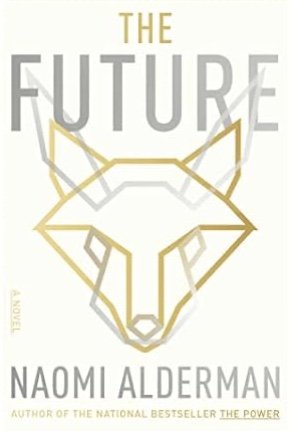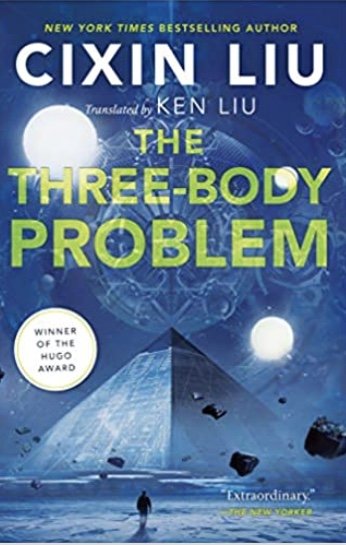The Future by Naomi Alderman (Simon & Schuster]
The Fall of Hong Kong sends young Lai Zhen to a refugee camp and on to the U.S. where she grows up to become an internet influencer whose specialty is survivalism. Martha Einkorn is a refugee from a religious cult who now works closely with an internet mogul whose mission is world domination. Lenk Sketlish is one of the three most powerful people on the planet, all of whom are determined to destroy what exists and start over from scratch.
Welcome to a world of hidden bunkers, womb-like suits constructed to provide every human need, and a special surveillance program that guarantees personal safety, even during an apocalypse. Religion, myth, and the ultimate in human greed all unite in a novel whose threads are intricate and nearly impossible to untangle. What begins as a satire with easily recognizable key characters swiftly becomes an end-of-the-world scenario. But wait! That’s only the beginning. Suddenly the book becomes a thriller, with Lai Zhen fleeing from a mysterious killer in the world’s largest shopping mall. This fades into a love story between Lai Zhen and Martha Einkorn that dissolves into a devious plan of revenge. It seems to culminate in an episode of Survivor, with four people on a deserted island that has no means of communication with whatever is left of the world.
Naomi Alderman has an imagination that can only be described as diabolical. Drawing upon recent events--the climate crisis, the Covid pandemic, the rise of Artificial Intelligence, the overwhelming amount of wealth and power controlled by a very few people--she throws her readers into a morass of fiction that borders perilously upon fact. Not since H.G. Wells created The War of the Worlds has any writer so skillfully manipulated nightmares into what seems to be a prophesy—or reality.
“You think you can change something big about the world and it ends with destruction. Every single time….What do you call it when you can’t do anything, but you can’t do nothing?” This simple observation and desperate question are both resonant and provocative. Although even the smartest of readers may find themselves floundering in the nooks and crannies of The Future, Martha Einkorn’s words will keep them enmeshed in spite of their confusion.
This novel goes through dizzying transformations in a way that’s reminiscent of the Aurora Borealis. It shifts its enticing patterns as quickly as it abandons one character for another or jumps from narration to baffling conversations on a survivalist forum. The story of Sodom and Gomorrah comes into play as God is asked “Will you spare the city if ten good men can be found within it?” The Future inverts this question by asking “Can the world be saved if four people are sacrificed?”
It’s a well-worn cliche to say that a book is mystifying right up to its last page. The Future continues to tease and baffle its readers beyond the last sentence of its last chapter. Placed in a part of a book that is rarely looked at are two sentences that upend whatever one might believe the ending is. Alderman goes beyond a cliffhanger into what amounts to literary sadism and makes a sequel inevitable. It looks as though she’s taken notes from Liu Cixin’s Remembrance of Earth’s Past. If so, she owes us all two more novels, sooner rather than later.~Janet Brown



